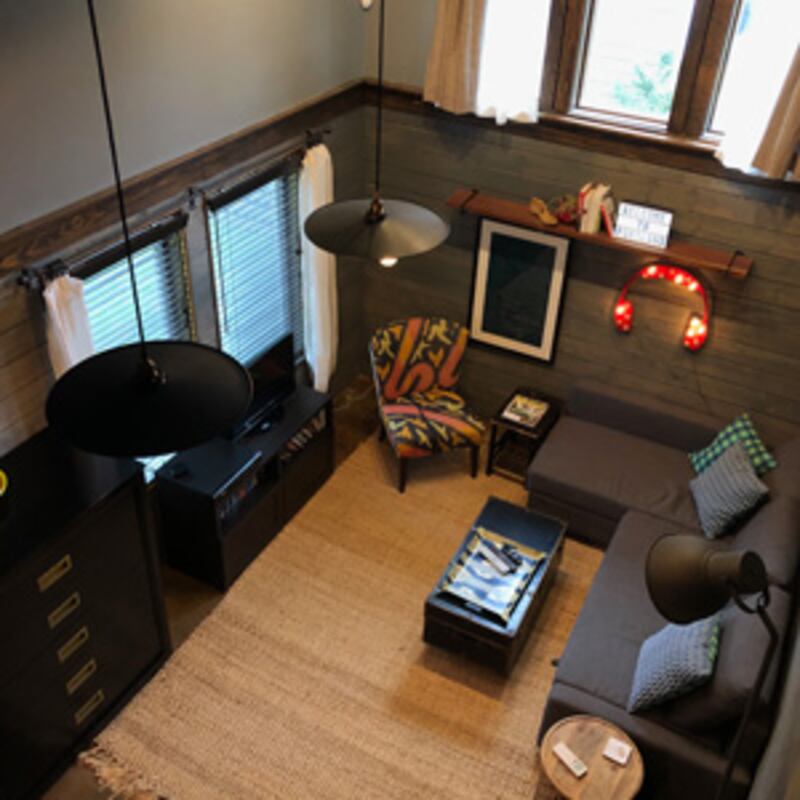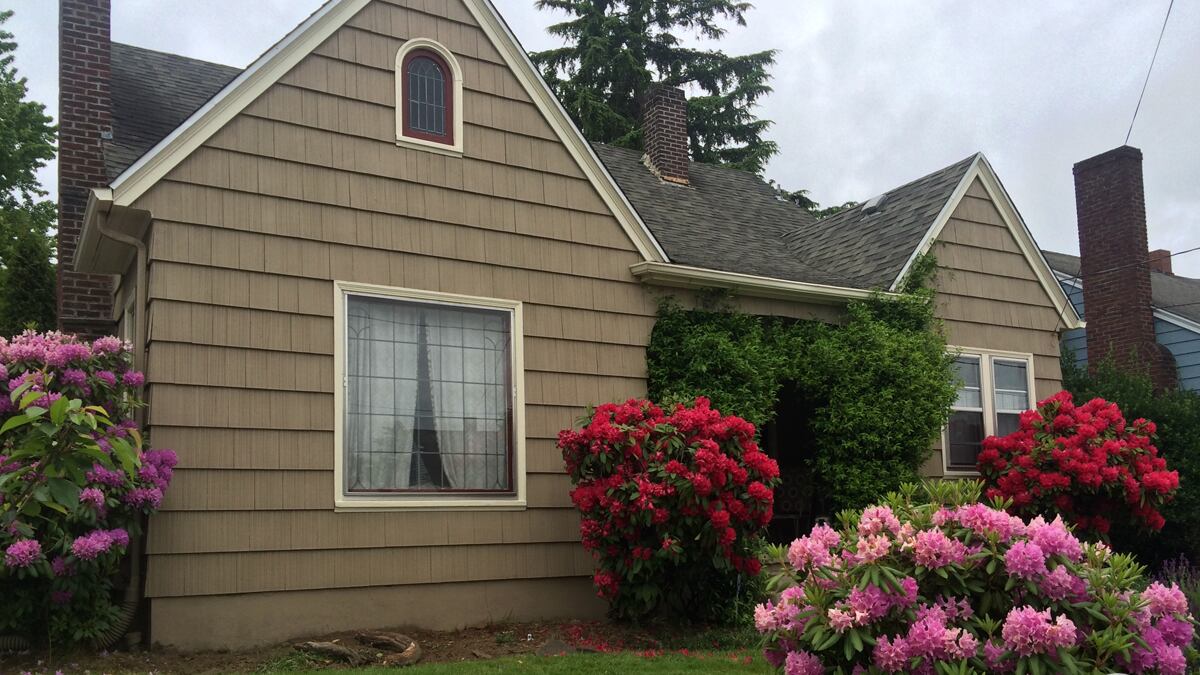Sponsored content presented by PDX Inspired
Newsflash: buying a house is expensive.
In Portland, especially, owning a home is only getting more costly. It does not, however, have to be a complete financial drain. In fact, it’s possible to buy a home and actually earn money.
Welcome to the art of house-hacking—the practice of purchasing either a multi-unit property or single home with an ADU and living in one unit while renting out other parts of the property to help offset your mortgage and other costs.
It’s something Sophia Rosenberg knows plenty about, and not just because she sells houses for a living. A realtor with PDX Inspired, Rosenberg has first-hand experience with successful house-hacking: In 2016, she bought a century-old four-square in North Portland that was top of
her budget. She converted the property’s ADU—a former music studio—into an AirBNB that ended up bringing in $30,000 annually, allowing her to cover the mortgage and, in 2020, buy her current home in Concordia.
“I look at real estate a lot like a ladder that people can use in order to climb to financial freedom,” Rosenberg says. “With house-hacking specifically, it allows people to do it a bit faster.”
And according to Rosenberg, Portland is an ideal place for it, thanks to the demand for short-term rentals, influx of young families transplanting from out-of-state and the concentration of hotels outside the city’s most desirable neighborhoods. (Since 1992, there have only been 4 years in which Portland home prices declined, and that was during the nation-wide recession.)
It’s a simple concept, sure. But doing it right means knowing what you’re doing—and also knowing what pitfalls to avoid. So we asked Rosenberg for five tips on venturing into the world of house-hacking.
Tip 1: Do your homework—literally.
Before assuming that you can house-hack in order to comfortably cover part or all of a mortgage, market research is crucial. Look at long-term rental prices for comparable homes in your area. If you’re thinking about short-term rentals, check local Airbnb listings to understand daily rates and the amount of time they are typically occupied. Also, try to talk to people doing similar house hacking activities to get as much anecdotal information as possible.
Tip 2: Know the law—and know it’ll change.
It’s important to have an understanding of short-term rental laws in the area you wish to purchase. Rules differ by city and county, and often change frequently to account for long term housing crises. (Find Portland’s here: https://www.portland.gov/bds/astr-permits/you-apply.) Make sure that when you purchase a property with the intention of house hacking, you have a plan B for revenue generation. Also, be sure to check zoning laws if you’re planning on building a new structure.
Tip 3: Follow the money.
Look at your finances holistically: what are fixed expenses, operating expenses, your net income, and a budget for repairs. Considering these things comprehensively can help in making
a sound investment decision. (You’ll want to make sure that you have money put aside for any necessary repairs or capital improvements, including furniture, kitchen items and linens.) From there, seek out financing that makes sense for your situation. Some lenders are well-versed on investment properties and the concept of house-hacking, while others are more traditional. Work with a lender who understands your goals and anticipated uses for the property to find a loan that fits with your plan. Local lenders are often preferable to national chains and brands because they’re more readily available and want to make sure they understand the goals of the buyer.
Tip 4: Assemble your squad.
Get with a financial and tax advisor to figure out the best way to set up your investments. Depending on your overall financial situation, you might want to create a corporation in order to save in taxes and protect yourself from personal liabilities. Be sure your home insurance provider also understands the intended use of your property so that you have proper coverage, and find an agent experienced in investment properties and/or house hacking. They’ll be able to really guide and recommend properties that can be great sources of revenue. Then get a crew of help ready to go: cleaners, painters, contractors, plumbers, electricians, etc. Your real estate agent should also be a great source for this.
Tip 5: Give your guests an experience.
Make sure your listing is designed with nice furniture and amenities—and professionally photographed. Your real estate agent can help make those connections.

“My past professional experience was in interior architecture, styling photo shoots and the marketing-branding of new hotels, so I’m able to really tell a story through photos and marketing in order to get them top dollar for the work they’ve done, even before any potential buyers step foot in the home” Rosenberg says. “I’m never not thinking about design, for both buyers and sellers.”

